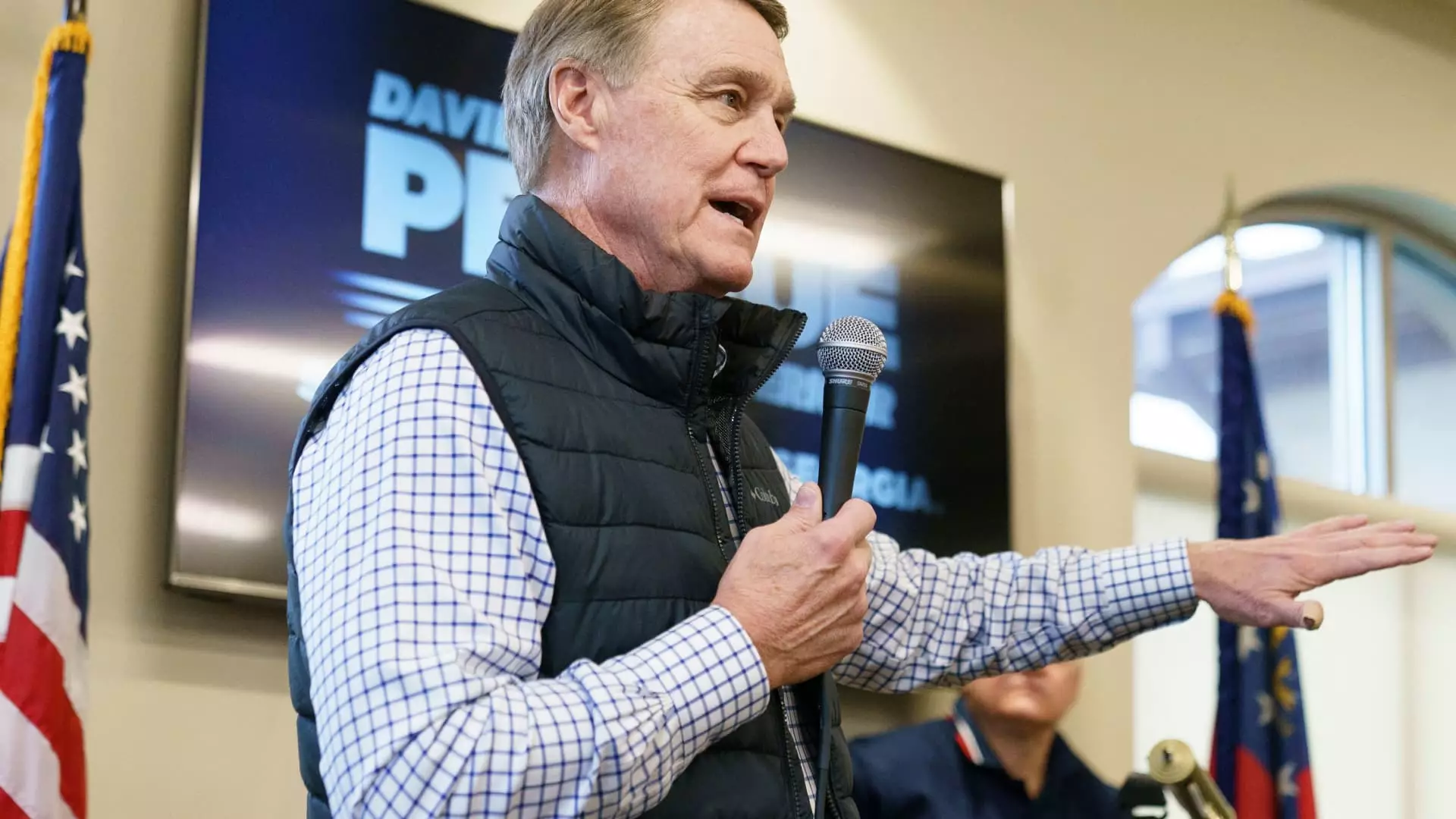In a pivotal move for U.S.-China relations, President-elect Donald Trump has announced his selection of former Senator David Perdue as ambassador to China. This choice is not simply symbolic; it reflects a critical approach to navigating the multifaceted relationship between the two countries, which is increasingly characterized by mistrust and heightened trade tensions. Trump’s strategy, as outlined on his social media platform, emphasizes the importance of fostering a peaceful yet productive partnership with Chinese leadership, a task that carries immense implications for global diplomacy.
As the newly inaugurated president prepares to assume power on January 20, 2025, he has signaled that a robust approach to trade is non-negotiable. Trump’s threat of a 10% tariff on Chinese imports, contingent upon China’s action against fentanyl trafficking, coupled with his warning of potential tariffs soaring beyond 60%, underscores a commitment to assert U.S. interests. These measures reflect a broader strategy to hold Beijing accountable for practices regarded as detrimental to American economic and public health, reigniting an era of confrontation reminiscent of the trade war initiated during his first term.
David Perdue brings a wealth of experience to the role, not only as a former senator but also through his extensive tenure in the business sector, including a significant period spent in Hong Kong. This combination of legislative knowledge and real-world business experience may equip him with unique insights into the complexities of U.S.-China dynamics. Historically, the appointment of seasoned politicians to the ambassadorship in Beijing is a tactic used to leverage their relationships and understanding of the landscape — a strategy intended to facilitate crucial dialogues. However, despite Perdue’s background, the question remains whether his political connections can effectively bridge the growing divide between the two nations.
Implications of Diplomatic Dynamics
The ramifications of Trump’s appointment and proposed policies extend beyond mere trade discussions. The nomination of hardliners like Perdue and Senator Marco Rubio for key positions indicates a shift towards a more confrontational strategy against China. Analysts predict that Beijing may seek direct engagement with the president and his advisers, instead of relying on the traditional diplomatic channels. As tensions simmer, this could lead to an environment where quick, decisive interactions become the norm, potentially escalating conflicts or leading to breakthroughs.
As the landscape of international relations evolves, Trump’s appointment of David Perdue signifies a return to traditional political maneuvers in a unique context. With trade tensions at a zenith, the effectiveness of Perdue’s tenure as ambassador may depend on his ability to resonate with both political and business leaders in China. The road ahead is fraught with challenges, and the ultimate success of this diplomatic strategy may hinge on finding a delicate balance between tough negotiations and fostering collaborative dialogues. In a world increasingly characterized by geopolitical rivalries, the U.S.-China relationship will undoubtedly remain a focal point of global scrutiny in the years to come.

